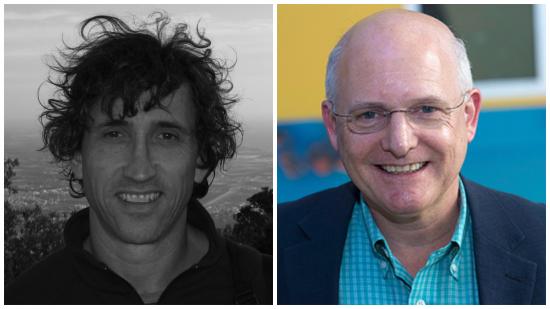This month it was announced that CSAIL researchers Nir Shavit and Charles Leiserson will be participating in a cross-institutional consortium project at Harvard focused on brain-mapping.
Merging the disciplines of data science and neuroscience, the Machine Intelligence from Cortical Networks (MICrONS) project aims to restructure machine learning through reverse-engineering the algorithms of the brain.
Shavit and Leiserson are looking at new approaches to designing high-speed processing technology to put together “slices” of brain imaged by electron microscopes at rates upwards of a terabyte of data per hour. By creating so-called “connectivity graphs” from rat brains, researchers will hopefully be able to improve computation of neural networks. The ultimate goal is to use such methods to do complex human tasks such as scene parsing.
Based at Harvard’s Wyss Institute for Biologically Inspired Engineering, the consortium is supported by a $21 million contract from the Intelligence Advanced Research Projects Activity (IARPA).
Shavit is a professor in the Electrical Engineering and CS department, winner of the ACM’s Godel and Dijkstra Prizes. He conducts research in the field of connectomics. Leiserson is a Margaret MacVicar Faculty Fellow, the highest recognition at MIT for undergraduate teaching, is a newly elected member of the National Academy of Engineering, and has won the ACM’s Kannalakis award for his fundamental contributions to parallel computation.
Shavit and Leiserson will be collaborating with Jeff Lichtman from Harvard’s Cellular and Molecular Biology department, as well as computer science professor Hanspeter Pfister.
CSAIL researchers collaborate on brain-mapping consortium
